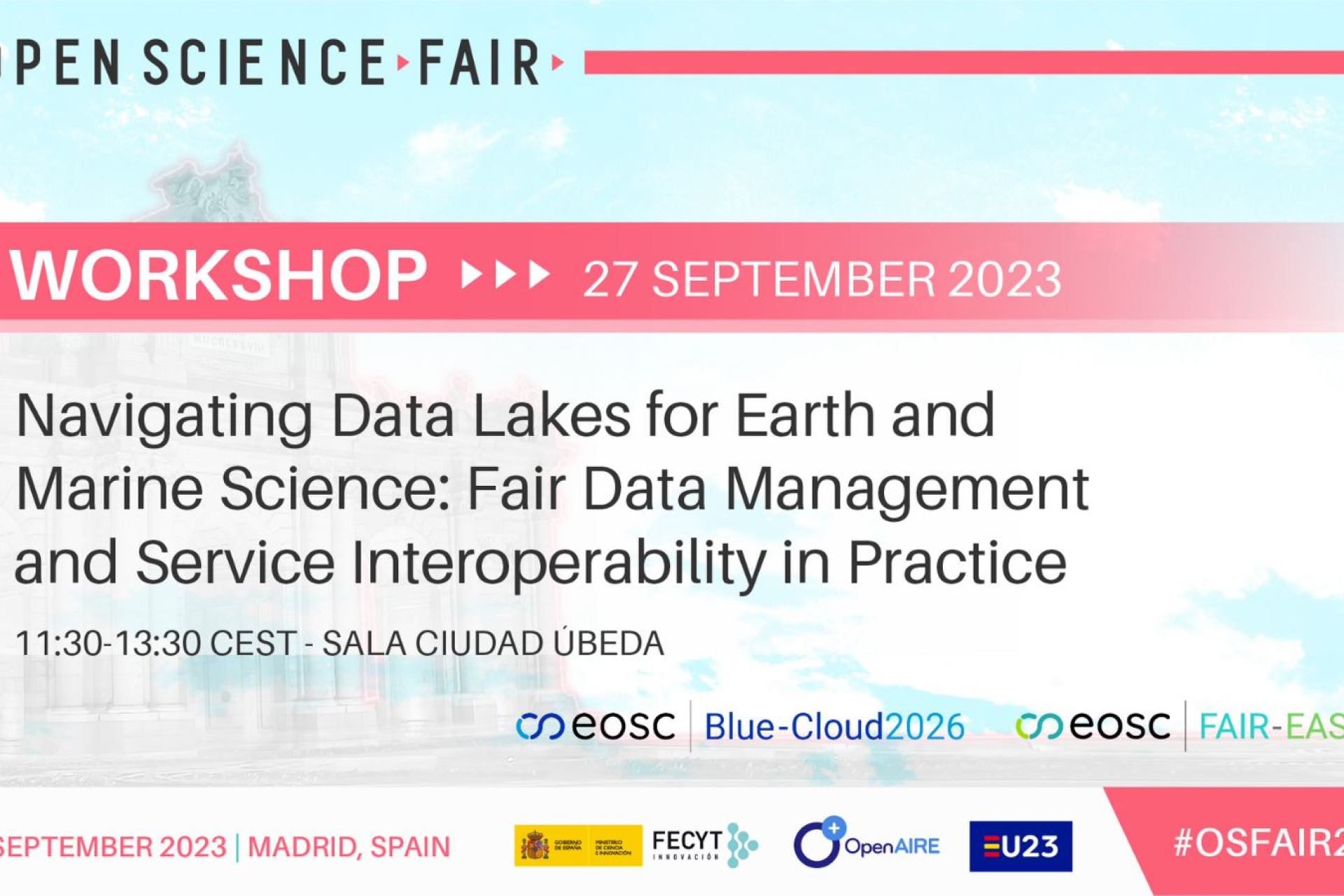Navigating Data Lakes for Earth and Marine Science: Fair Data Management and Service Interoperability in Practice

Join the Horizon Europe projects Blue-Cloud 2026 and FAIR-EASE at the Open Science FAIR on September 27, 2023, for their compelling joint workshop: "Navigating Data Lakes for Earth and Marine Science - Fair Data Management and Service Interoperability in Practice." Rita Giuffrida, Research Analyst at Trust-IT and esteemed member of the Blue-Cloud 2026 project will be moderating the session and also showcasing the project booth at the Open Science FAIR exhibition.
This workshop is envisioned as an addition to the Blue-Cloud Training Academy, which aims to stimulate the uptake of FAIR data practices in marine science and neighbouring disciplines, through contributions by key actors such as EuroGOOS and IEEE. The workshop also has a strong overlap with the FAIR-IMPACT project regarding the development and uptake of FAIR service descriptions (expansion of FAIR software) and methods for assessment.
To manage and provide access to a large amount of data, a federated or distributed Data Lake can be a solution but it presents some technical bottlenecks and sustainability constraints. For the federation of services, it is crucial to achieve technical and semantic interoperability between the services for providing added value to users. “Just providing API’s” is not sufficient. As a basis, each data access service (being a “plain” dataset access service or a more advanced subsetting service) needs a FAIR service description which includes e.g. the expected input, output, processing capacity, data policy (CC-BY), etc.
Both Blue-Cloud 2026 and FAIR-EASE run into this complex data lake challenge which could be well supported by FAIR service descriptions. Blue-Cloud 2026 is active in the marine domain developing virtual labs, workbenches for Essential Ocean Variables (EOVs) and a Virtual Research Environment (VRE) on top of Blue Data Infrastructure services, and, FAIR-EASE develops similar services on top of data access services in the multi-disciplinary domain. Both projects (in coordination with other projects (e.g., EuroSciencesGateway) contribute to the implementation of the EOSC interoperability framework.